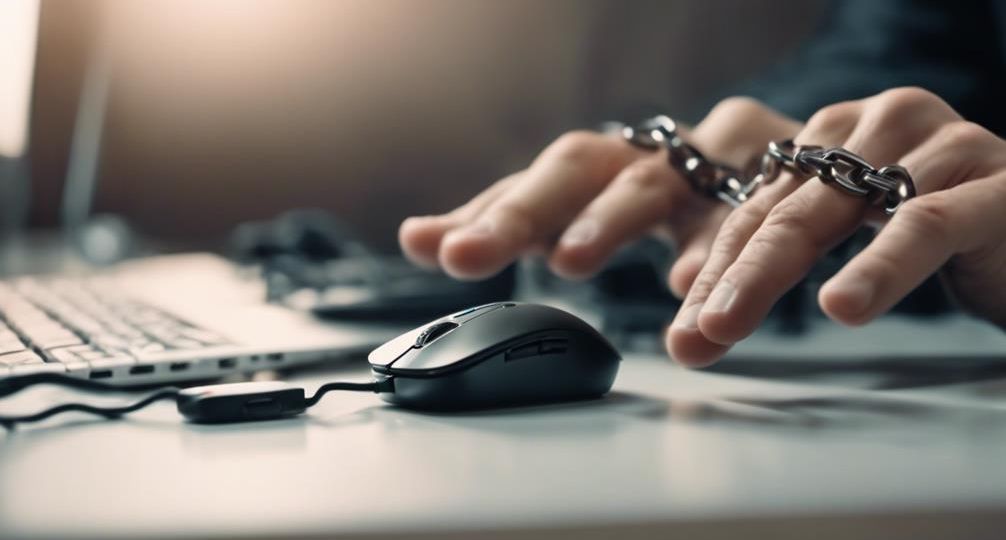
Can I be sued for YouTube comments?
You might not be aware, but the comments you casually type on YouTube videos could potentially land you in hot water legally. Defamation laws, which protect individuals from false statements that could harm their reputation, apply to online platforms as well, including YouTube.
Now, you’re probably thinking, ‘But I have freedom of speech, right?’ Well, it’s not that simple, especially when the internet is involved. This leads us to an intriguing question: Can you really be sued for your YouTube comments?
Stick around, as we unpack this complex issue.
Key Takeaways
- Yes, you can be sued for defamation if your YouTube comments involve false statements that cause damage to someone’s reputation.
- Online platforms like YouTube enforce community guidelines and user agreements, and violations can lead to legal disputes.
- Freedom of speech on the internet is balanced with content moderation to curb hate speech and disrespectful comments.
- User anonymity on YouTube can complicate legal proceedings, but it doesn’t provide complete protection against defamation lawsuits.
Understanding the Basics of Defamation Law
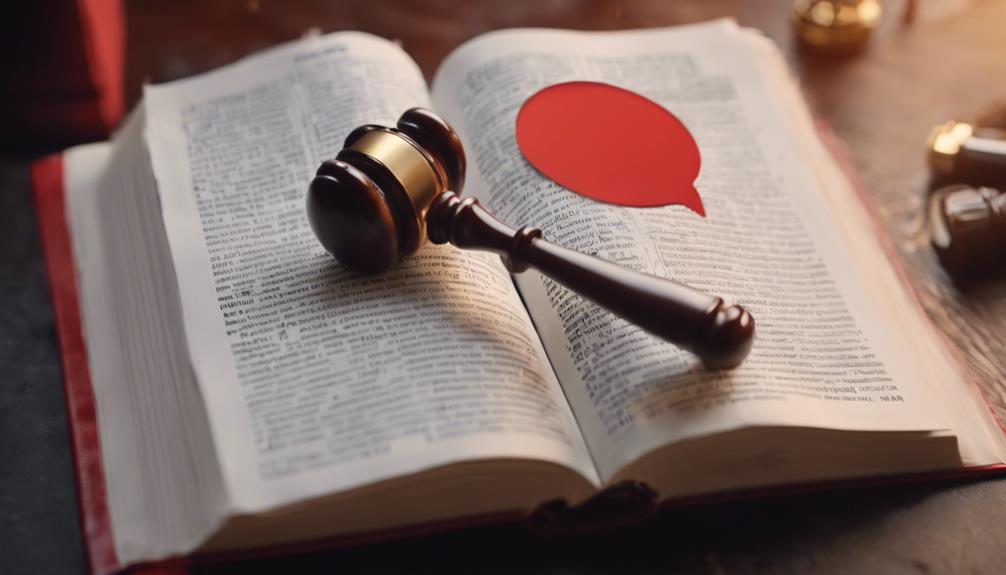
Before delving into the specifics of potential legal consequences for YouTube comments, it’s crucial to grasp the basics of defamation law.
In essence, defamation involves making false statements that injure someone’s reputation. There are four primary Defamation Elements: a false statement purported as fact, publication or communication of that statement to a third party, fault, and damage to the subject’s reputation.
To successfully claim defamation, the plaintiff must establish these elements. Innovative approaches to digital communication have seen these principles applied in new, groundbreaking ways. For instance, in the world of YouTube comments, the ‘publication’ element is met as soon as you hit ‘post’ on your comment – it’s now visible to a third party, the YouTube community at large.
However, don’t forget about the Truth Defense. This is one of the most potent defenses against a defamation claim. If the statement you made is factually accurate, it can’t be defamatory, no matter how damaging it may be to someone’s reputation. So, while you navigate the digital sphere, stay informed, remain vigilant, and ensure your comments are rooted in truth to avoid potential legal pitfalls.
How Online Platforms Handle Legal Disputes
In navigating the complexities of legal disputes, it’s essential to understand how online platforms like YouTube handle these issues, often through a combination of user agreements, content moderation, and cooperation with legal authorities. These platforms take a proactive approach to minimize legal risks and foster a safe environment for their users.
Ensuring platform accountability is a key aspect of these strategies. Online platforms enforce user agreements and community guidelines that you, as a user, must adhere to. Violations may result in the removal of content, suspension of your account, or in severe cases, legal action.
Cyberbullying consequences are another critical concern for these platforms. When harmful or offensive content is reported, platforms like YouTube take immediate action. They’ve sophisticated tools and algorithms to detect and remove such content, thus preventing potential legal disputes.
Moreover, online platforms often work in tandem with legal authorities. When a serious legal dispute arises, such as a defamation claim, these platforms can assist in investigations and provide necessary user information within the confines of privacy laws.
In essence, the handling of legal disputes by online platforms is a delicate balancing act, ensuring user safety and platform integrity while respecting individual rights.
The Role of Free Speech on the Internet
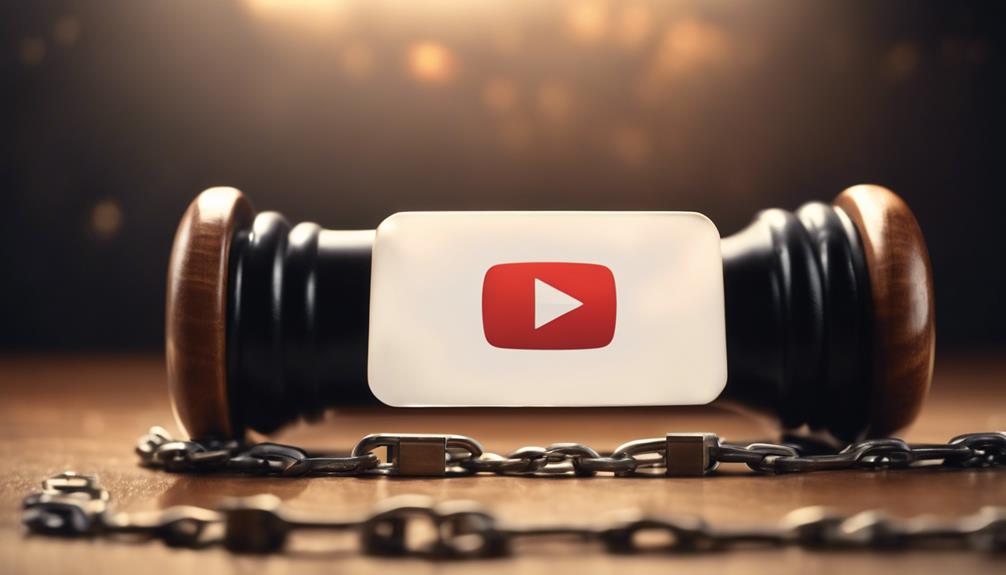
While respecting individual rights is crucial, it’s equally important to consider how free speech plays out on the internet, especially on platforms like YouTube. The digital landscape is a fertile ground for innovation, but it also brings challenges related to internet censorship and social media ethics.
To paint a clearer picture, let’s consider the following:
- Freedom of Speech: This fundamental right allows you to express your opinions openly. However, it doesn’t give you carte blanche to defame or harm others.
- Internet Censorship: While free speech is essential, it’s not absolute online. Platforms have the right to moderate content, which can sometimes lead to allegations of censorship.
- Social Media Ethics: You must respect others’ rights and dignity. Inflammatory, offensive, or defamatory comments can lead to legal consequences.
- Innovation and Progress: Free speech fosters creativity and progress. It’s the engine of innovation, but it also requires responsible usage.
Case Studies: YouTube Comments Lawsuits
Let’s delve into a few notable lawsuits that stemmed from YouTube comments, shedding light on the potential legal ramifications of your online activity. Understanding these case studies could help you navigate the complexities of social media litigations.
In 2007, the landmark case of Doe v. Ciolli set a precedent when a law student sued anonymous users for derogatory comments made on a YouTube video. The court’s decision established that Internet harassment cases can be pursued even if the perpetrator is anonymous.
Another notable case is Obsidian Finance Group v. Cox, where a blogger was sued for defamation due to her comments on a YouTube video. The court ruled in favor of Obsidian, stating that even online comments must adhere to the principles of truth and fairness.
These cases highlight the necessity for responsible online communication. Remember, while you’re entitled to express your opinions, crossing the line into harassment or defamation can lead to serious legal consequences. So, before you post that comment, think about its potential repercussions. It’s not just about being a good digital citizen, but also about protecting yourself from potential lawsuits.
The Digital Millennium Copyright Act (DMCA)
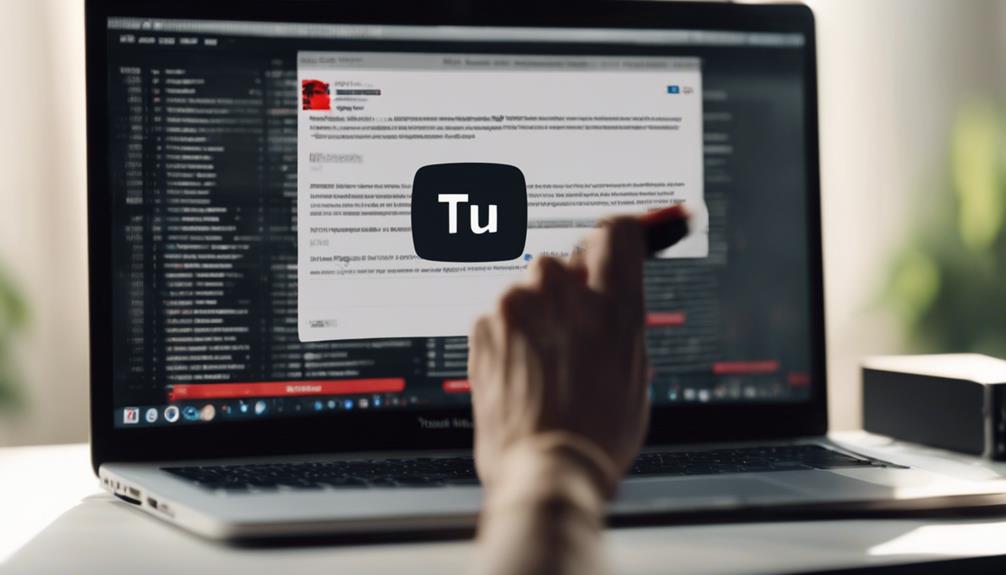
Moving on to another critical internet law, the Digital Millennium Copyright Act (DMCA) can also impact your activity on platforms like YouTube, particularly when it comes to copyright infringement. This law, enacted in 1998, was designed to protect the rights of copyright holders in the digital age, but it also provides guidelines and limitations that can affect you as a user.
Under the DMCA:
- You’re required to respect the copyrights of others. This means you can’t reproduce, distribute, or display copyrighted works without permission.
- You may be subject to DMCA penalties if you’re found guilty of copyright infringement. These penalties can range from hefty fines to potential imprisonment.
- The DMCA includes a provision known as the Fair Use Doctrine. This allows limited use of copyrighted works for purposes such as criticism, comment, news reporting, teaching, and research. However, it’s always best to be certain your use falls under this doctrine before proceeding.
- You can potentially face legal trouble for posting copyrighted material in your YouTube comments, even if you’re not the original infringer.
Innovation is vital in a fast-paced digital world, but it’s equally important to understand and respect these boundaries.
How to Protect Yourself From Legal Trouble
To safeguard yourself from potential legal issues on YouTube, it’s crucial to stay informed and adhere strictly to the platform’s guidelines and regulations. Understanding the boundaries of commenting etiquette is a fundamental part of this process.
In a world where social media liability is increasingly becoming a contentious issue, you should be mindful of your online conduct. It’s not just about refraining from offensive or inappropriate remarks, but also about respecting the intellectual property rights of others.
Here’s a simple table that summarizes the key points to remember:
| Key Aspect | Do’s | Don’ts |
|---|---|---|
| Commenting Etiquette | Be respectful and constructive | Avoid personal attacks and hate speech |
| Intellectual Property | Acknowledge sources and ask permission when necessary | Don’t use copyrighted material without permission |
| Social Media Liability | Be aware of your actions and their potential legal implications | Avoid defamatory remarks and invasion of privacy |
The Future of Online Commenting and Law
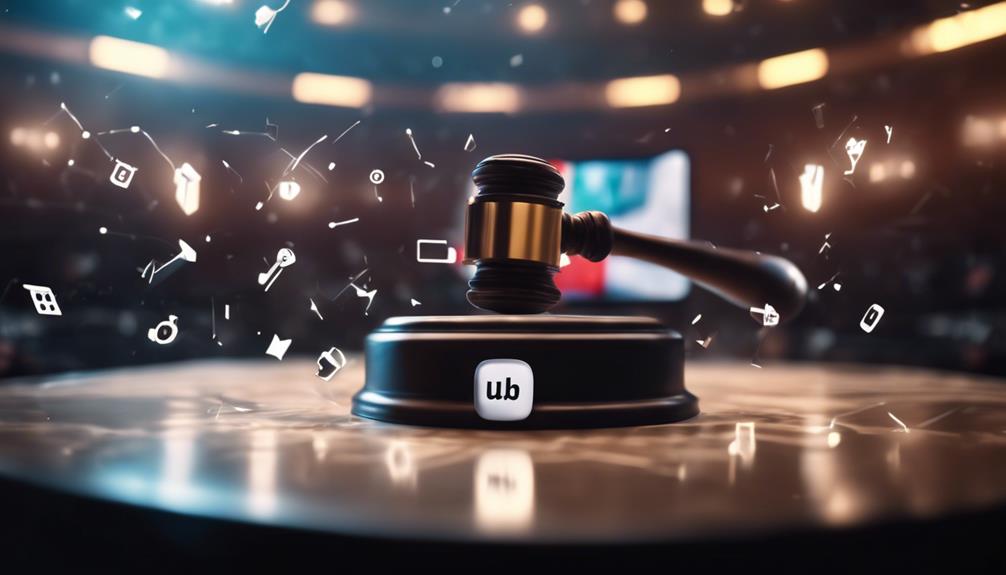
As we look ahead, the landscape of online commenting and its legal implications is set to undergo significant changes. The future isn’t simply about what you write, but how you write it, and even what emoticons you use.
- Legal Implications of Emoji Use: As emojis become a common way of expressing emotions, their legal interpretation is becoming more complex. Courts may soon need to interpret emojis, potentially added to the complexity of online litigation.
- Role of Artificial Intelligence in Moderating Comments: AI will play a larger role in moderating comments. It’ll be designed to flag potentially defamatory comments, reducing the risk of lawsuits.
- Stricter Regulations: Expect tighter guidelines on what constitutes acceptable comments. This could potentially limit freedom of speech, but also curb hate speech and cyberbullying.
- Improved Anonymity Protection: As more people become concerned about their online privacy, platforms may improve measures to protect user identities. This might make it harder to identify potentially defamatory commentators.

